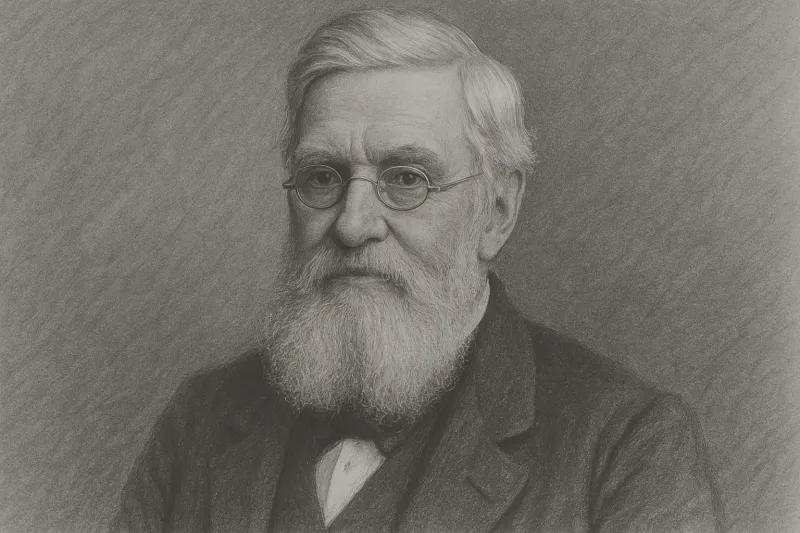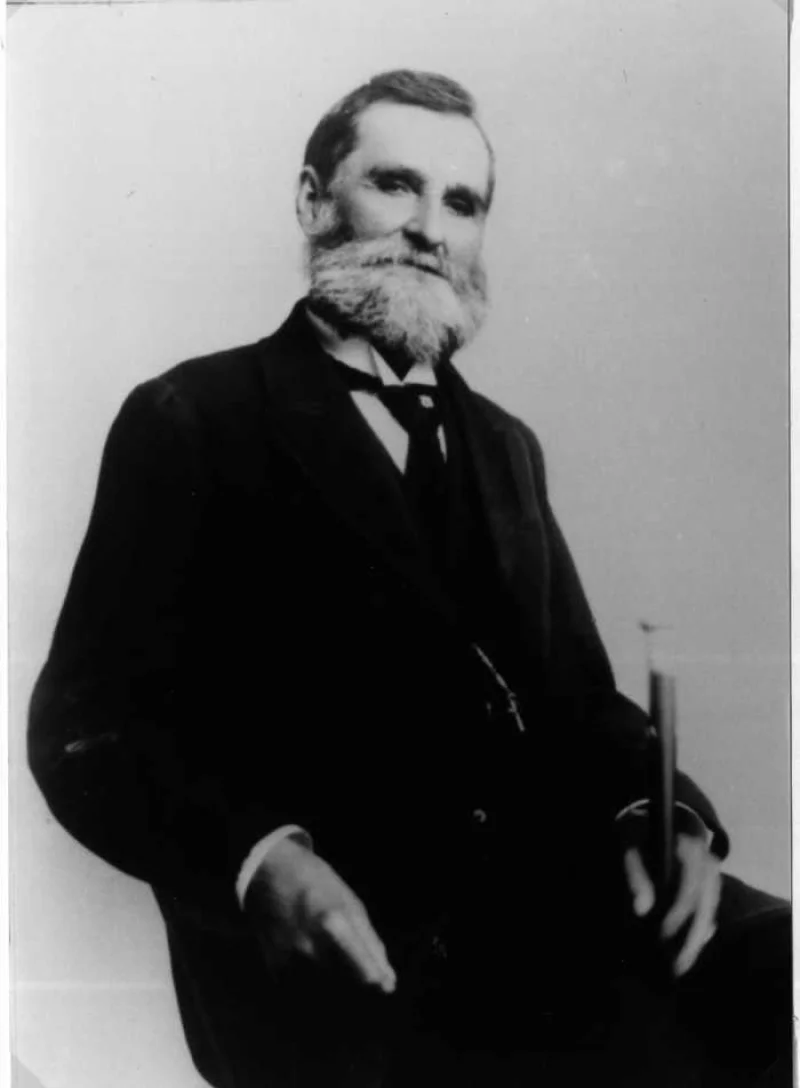Short Summary
Alfred Russel Wallace was a British naturalist, explorer, and biologist known for independently conceiving the theory of evolution through natural selection. His work significantly contributed to the field of biogeography and he was a contemporary of Charles Darwin. Wallace's explorations in the Amazon and Southeast Asia provided invaluable insights into the distribution of species, making him one of the most influential scientists of his time.
Early Life & Education
Born on January 8, 1823, in Llanbadoc, Wales, Alfred Russel Wallace was the eighth of nine children in a modest family. His father, Thomas Vere Wallace, was of Scottish descent and faced financial difficulties, which led to the family moving several times. Wallace attended Hertford Grammar School but had to leave at the age of 14 due to financial constraints. Despite limited formal education, he was an avid reader and was greatly influenced by the works of Thomas Paine and Charles Lyell. His early interests in botany and geology were nurtured by his elder brother, who introduced him to surveying, providing a foundation for his future scientific pursuits.
Career Highlights
Wallace's career was marked by extensive exploration and scientific inquiry. In 1848, he embarked on an expedition to the Amazon River basin with Henry Walter Bates, where he collected numerous specimens. Although much of his collection was lost in a shipwreck, his observations formed the basis for his early scientific work. In 1854, Wallace traveled to the Malay Archipelago, where he spent eight years studying wildlife and collecting specimens. It was here that he developed the theory of evolution by natural selection independently of Charles Darwin. His book, "The Malay Archipelago," remains a classic of scientific literature.
Major Achievements
- Developed the theory of evolution through natural selection independently of Charles Darwin.
- Published "The Malay Archipelago," a seminal work in biogeography and natural history.
- Identified the Wallace Line, which separates the fauna of Asia and Australia.
- Co-founder of the study of biogeography, emphasizing the geographical distribution of species.
Famous Quotes
- "In every generation, the less fit are killed off and the survivals of the fit multiply."
- "The world is changing much faster than I am able to comprehend."
Interesting Facts
- He was a spiritualist and believed in the existence of an afterlife.
- Wallace was a vocal advocate for social reform and land nationalization.
- He was awarded the Order of Merit in 1908 for his contributions to science.
Legacy / Influence
Alfred Russel Wallace's contributions to the theory of evolution and the field of biogeography left a lasting impact on the scientific community. His work influenced future generations of naturalists and ecologists, cementing his place as a pivotal figure in biology. Despite controversy over his role in the discovery of natural selection, his scientific rigor and broad interests continue to inspire research in evolutionary biology and conservation.
FAQ
Q: Why is this person famous?
A: Because of his independent development of the theory of evolution through natural selection alongside Charles Darwin.
Q: What was his contribution to biogeography?
A: He co-founded the study of biogeography, identifying distinct faunal regions like the Wallace Line separating Asia and Australia.
Q: Did he write any books?
A: Yes, his most famous work is "The Malay Archipelago," detailing his explorations and studies in Southeast Asia.













